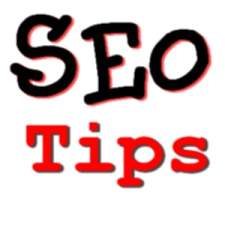On-Page Optimization Tips
 There are many factors that contribute to showing up well in search engine results.
There are many factors that contribute to showing up well in search engine results.
Some of the most important items are found on the web site themselves and are called “On-Page Optimization.” Some of the areas of concern on websites include:
Page Title
URL
Meta Description
Alt Attributes for Images
Content
Before doing anything with On-Page Optimization (or any other SEO for that fact) you first have to choose the right keywords for your site.
Page Titles
Titles are very important to on-page optimization. The titles show up at the top of the browser and are often used by search engines as the title in search engine results. The title is a good place for keywords. Make the title direct, to the point and ensure that all the pages on your site have their own unique titles. For example, a page about PVC pipes on a plumbing site could have a title of “Cheap PVC Plumbing Pipes | Joes Plumbing Supplies” (I had to use Joe the Plumber as an example, couldn’t help myself). Notice that with one long keyword term many targeted words are included. By using this keyword phrase a search engine is likely to serve this page when people search for PVC pipes, cheap PVC pipes, cheap plumbing, cheap plumbing pipes, cheap plumbing supplies etc.
URL
Often when sites are designed using a Content Management System (CMS), the URLs on deeper pages look like you just spilled a cup of alphabet soup on your desk. Sometimes these URL’s are dynamic so they change every time you visit the page, making it a huge problem for the bots to properly index the pages. Unfortunately the URLs also have nothing to do with your targeted keywords unless you want to show up for po=J0ro57v. Many CMSs have modifications that can be added to make URLs search engine friendly. For example: www.joesplumbingsupplies.com/products/pvc_pipes is a URL that is Search Engine Friendly, because it is short, descriptive, and includes relevant keywords.
Meta-Description
The meta description shows up in the code of the page. Make sure each page on your site has it’s own unique meta description tag. The meta description is often used to describe the page in the search engine results after listing the page title. Having a relevant meta description increases the chances that people will click on your listing. It can also be used to include a phone number or some other call to action.
Code Structure
When structuring the body of the site, use h1 and h2 tags. The Search Engines place a high priority on words in the h1 and h2 tags. Getting ranked first in Google will be of little worth if the content on your site is not relevant or the content is confusing. Sometimes coders forget that people are reading this page and not just some random Google bot. When designing and coding sites, always place priority on the humans coming to the web site over the search engine bots. Be cautious about what content you place in flash. Although Google can now detect the text inside of flash files it is still better to place keywords in the html surrounding the flash. Some sites use Java Script extensively for site structure and navigation. Because bots tend to get confused when reading Java Script avoid using in this way. Many coding geeks have debated whether the bold tag or the strong tag is better for SEO. According to Matt Cutts Google places the same weight on both tags
Alt Attributes
Often times when people do on-site optimization they overlook placing Alt attributes on pictures. By properly describing the pictures on a site the search engines will see that even the pictures are relevant to the keywords. By doing this you are also more likely to show up in the results when people search for images.
Content
The last point is one of the most important. Whether you have content to sell your products or your product is the content it’s important to have enough relevant content all your pages. Make sure the entire page reads smoothly and is understandable because humans buy products not search engine bots. It’s good to link out to other sites as long as they are relevant. Be careful of having too many outbound links on any one page of a site. Many people have the misconception that you build a website and then kick back and watch the money roll in.
Building a website is a job that is truly never done. You should always be updating and modifying information on your sites. If you want people coming back to your site you have to give them something to come back for. By adding new content to a site you also improve your chance of ranking well in Google. Regular updates will help your site get indexed faster. Search engines will see frequently updated sites as up to date, accurate and relevant.
On-site Optimization should be the first thing you do after determining your keywords. If you follow these simple guidelines you will find that you will rank much better in search engines.


